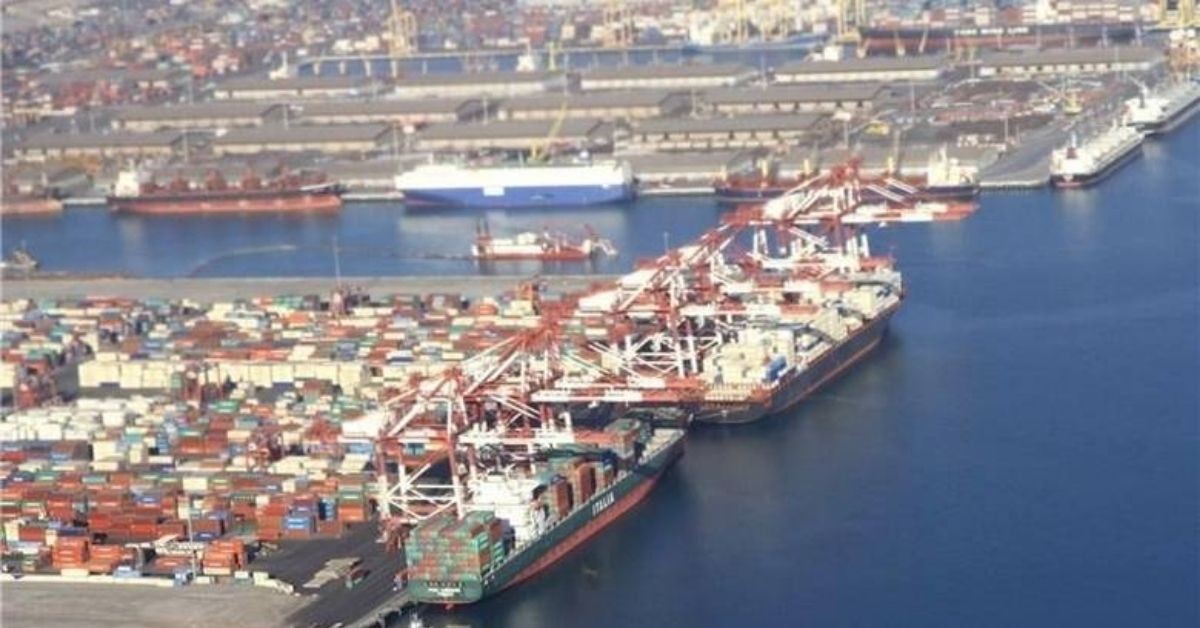External Affairs Minister (EAM) S Jaishankar on Thursday proposed the inclusion of Iran’s Chabahar Port in the International North-South Transport Corridor (INSTC) and invited Uzbekistan and Afghanistan to join the multi-lateral corridor project, Trend reports citing ANI.
Addressing the virtual “Chabahar Day” event organised on the margins of the Maritime India Summit 2021, Jaishankar said, “INSTC is an important trade-corridor project, wherein India is partnering with 13 countries to establish the economic-corridor for the benefit of our peoples. We also welcome the interest of Uzbekistan and Afghanistan to join the multi-lateral corridor project. Establishing an Eastern Corridor through Afghanistan will maximize its potential.”
“India has proposed the inclusion of Chabahar in the INSTC route. I am hopeful that during the INSTC Coordination Council Meeting, member-states will agree to the expansion of the INSTC route to include the Chabahar port and also agree on expanding the membership of this project,” he informed.
INSTC is a 7200-kilometre ship, rail, and road route for moving freight between India, Russia, Iran, Europe and Central Asia. The members of this INSTC project are India, Iran, Russia, Azerbaijan, Kazakhstan, Armenia, Belarus, Tajikistan, Kyrgyzstan, Oman, Syria, Turkey, Ukraine, and Bulgaria (observer).
The move reflects India’s strong commitment to work together with all regional stakeholders to enhance connectivity in our region and to provide unhindered access to the sea, to land-locked Central Asian countries through Chabahar Port, said Jaishankar.
The Chabahar port, where an Indian state-run firm – India Ports Global Limited operates Shahid Beheshti Port, is the practical realisation of this important initiative to enhance connectivity to Afghanistan and the Central Asian states.
The port played an important role in shipping humanitarian aid to Afghanistan amid the COVID-19 pandemic as well as helped Iran to fight the locust invasion recently.
“India has utilised Chabahar Port to ship 75,000 metric tonnes (MTs) of wheat as humanitarian food assistance to Afghanistan in September 2020. India also assisted Iran to fight the worst ever locust invasion in the last 25 years by supplying 25 MTs of Malathion in June 2020 through Chabahar port,” said Jaishankar.
“Chabahar Port has not only emerged as a commercial transit hub for the region but also facilitated the delivery of humanitarian assistance, especially during the COVID-19 pandemic. Port is part of our shared commitment towards peace, stability and prosperity of people of Afghanistan,” he added.
Besides the Indian exports of food products, the port has also handled several shipments and trans-ships from Russia, Brazil, Thailand, Germany, Ukraine, and the UAE.
“This event (Chabahar Day) also commemorates five years of the signing of a tripartite agreement on the establishment of a trilateral transport and transit corridor. This agreement is a fitting tribute to the rich civilization, cultural and trade links between India, Afghanistan, Iran and Central Asia,” said Jaishankar.
The Chabahar Port was a search for efficient trade routes and better connectivity in the region. Focussing on its importance, Jaishankar said, “Today, as the world goes through a fundamental rebalance correcting many of the distortions of the past, it is only natural that connectivity should be central to that exercise. “
Maritime connectivity, in particular, has played a significant role in creating regional corridors for trade and economic linkages, as indeed for cultural and intellectual exchanges over the centuries. The access of land-locked economies to maritime movements’ has therefore been a particular focus of recent initiatives, the EAM said.
He further expressed said the correlation between connectivity and economic growth become even more pronounced in the modern age, adding that the shift in the fulcrum of global economic growth towards Asia is creating unprecedented opportunities for connectivity in the region.
“There is a huge infrastructure deficit in the region which needs to be met to fulfill the growing aspirations of our peoples,” said Jaishankar.
The Centre is recognising the importance of regional connectivity made a landmark decision to undertake overseas port investment in Chabahar, he further opined.
Asserting the prominent role of Prime Minister Narendra Modi in making this vision a reality, Jaishankar said, “This project had been under discussion for some time, it was during PM Modi’s visit to Iran in 2016 that the tri-lateral agreement to establish an international transport and transit corridor was signed by India, Iran, and Afghanistan.”
The transport and transit corridor was intended to ensure the unhindered flow of commerce throughout the region and to create a safe, secured, and reliable route to trade initially with Afghanistan and thereafter with Central Asia as a whole.
Source: Trend News Agency






